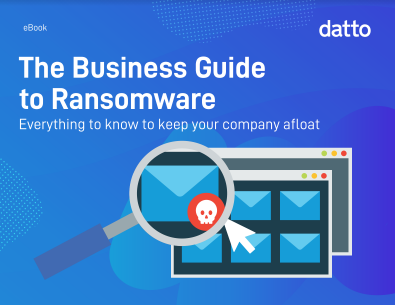Hackers sell $38 million in gift cards on Russian marketplace
Amazon, Nike, Walmart, and Target among the brands targeted by Russian hacking dark web forum


Hackers have sold more than $38 million in gift cards from US retailers on an underground Russian hacking marketplace.
According to Gemini Advisory’s investigation, hackers were observed offering to sell 895,000 stolen gift cards from 3,010 companies in early February.
The hackers claimed they had a database of over 3,000 brand-name gift cards. Affected companies included Airbnb, Amazon, American Airlines, Chipotle, Dunkin Donuts, Marriott, Nike, Subway, Target, and Walmart. The database may have originated from an older breach at online discount gift card shop Cardpool.com.
Before closing in early 2021, Cardpool.com operated as a gift card marketplace where individuals could sell unwanted gift cards to the shop. Cardpool.com would then resell those cards to others for less than their face value.
The hackers started the auction at $10,000 with a $20,000 buy-now price. According to security researchers, the gift cards were bought by another actor soon after they were posted for sale.
RELATED RESOURCE

The business guide to ransomware
Everything you need to know to keep your company afloat
The original hacker listed data from another 330,000 payment cards on the same forum the next day. This data included payment card number, expiration date, and bank name but not the CVV or cardholder name. Bidding for these details started at $5,000, but there was a $15,000 buy-now price. The payment cards sold within days of the hacker listing them for sale, but not as quickly as the gift cards.
Gemini Advisory’s analysis concluded that the 330,000 payment cards likely came from a Cardpool.com breach between February 4, 2019 and August 4, 2019.
Sign up today and you will receive a free copy of our Future Focus 2025 report - the leading guidance on AI, cybersecurity and other IT challenges as per 700+ senior executives
Researchers said the lack of CVV data indicates that the actor likely acquired the cards by gaining backend access to Cardpool.com, which would have enabled them to steal the gift card data and previous shoppers’ payment card data directly from the site’s databases.
“Attackers can acquire backend access to online shops through a variety of methods, including exploiting vulnerabilities in sites’ content management systems (CMS) and brute-forcing admin login credentials,” said researchers.
According to the researchers, the Cardpool.com case “offers a valuable glimpse into the ecosystem of carding.”
“The trick is not in acquiring stolen cards but in devising the most efficient way to cash out the funds on the cards before financial institutions can flag them as compromised,” they said.
Rene Millman is a freelance writer and broadcaster who covers cybersecurity, AI, IoT, and the cloud. He also works as a contributing analyst at GigaOm and has previously worked as an analyst for Gartner covering the infrastructure market. He has made numerous television appearances to give his views and expertise on technology trends and companies that affect and shape our lives. You can follow Rene Millman on Twitter.
-
 What is Microsoft Maia?
What is Microsoft Maia?Explainer Microsoft's in-house chip is planned to a core aspect of Microsoft Copilot and future Azure AI offerings
-
 If Satya Nadella wants us to take AI seriously, let’s forget about mass adoption and start with a return on investment for those already using it
If Satya Nadella wants us to take AI seriously, let’s forget about mass adoption and start with a return on investment for those already using itOpinion If Satya Nadella wants us to take AI seriously, let's start with ROI for businesses
-
 Scania admits leak of data after extortion attempt
Scania admits leak of data after extortion attemptNews Hacker stole 34,000 files from a third-party managed website, trucking company says
-
 Capita tells pension provider to 'assume' nearly 500,000 customers' data stolen
Capita tells pension provider to 'assume' nearly 500,000 customers' data stolenCapita told the pension provider to “work on the assumption” that data had been stolen
-
 Gumtree site code made personal data of users and sellers publicly accessible
Gumtree site code made personal data of users and sellers publicly accessibleNews Anyone could scan the website's HTML code to reveal personal information belonging to users of the popular second-hand classified adverts website
-
 Pizza chain exposed 100,000 employees' Social Security numbers
Pizza chain exposed 100,000 employees' Social Security numbersNews Former and current staff at California Pizza Kitchen potentially burned by hackers
-
 83% of critical infrastructure companies have experienced breaches in the last three years
83% of critical infrastructure companies have experienced breaches in the last three yearsNews Survey finds security practices are weak if not non-existent in critical firms
-
 Identity Automation launches credential breach monitoring service
Identity Automation launches credential breach monitoring serviceNews New monitoring solution adds to the firm’s flagship RapidIdentity platform
-
 Neiman Marcus data breach hits 4.6 million customers
Neiman Marcus data breach hits 4.6 million customersNews The breach took place last year, but details have only now come to light
-
 Indiana notifies 750,000 after COVID-19 tracing data accessed
Indiana notifies 750,000 after COVID-19 tracing data accessedNews The state is following up to ensure no information was transferred to bad actors
